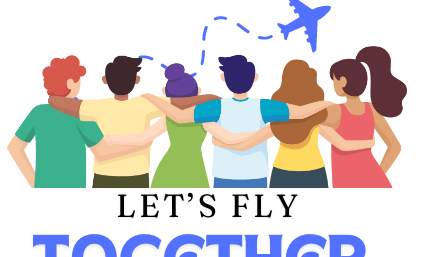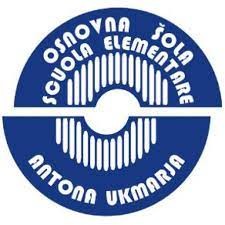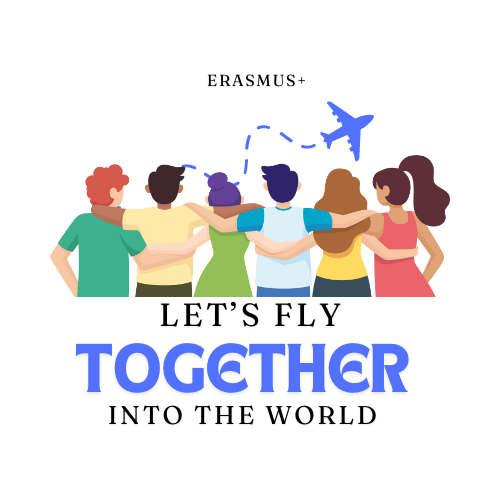Projekt naslavlja učence 8. razredov. Na eni strani tiste z manj priložnostmi v življenju, zaradi česar so v slabšem položaju zaradi enega ali več izključevalnih dejavnikov:
– kulturne razlike, ki predstavljajo velike ovire za učenje, zlasti za učence priseljence, ki imajo zaradi nepoznavanja jezika težave z integracijo v slovensko družbo in šolski sistem,
– ekonomske ovire, kamor sodijo učenci iz družin z nizkim življenjskim standardom in finančnimi težavami,
– družbene ovire, ki izvirajo iz družinskih okoliščin (otroci staršev odvisnikov, sirote, enostarševske družine),
– ovire, povezane s sistemi izobraževanja in usposabljanja (otroci z učnimi težavami).
Tem učencem bi radi dvignili samopodobo, zaupanje vase in svoje sposobnosti ter jim pokazali, da ima vsak tudi močna področja. Na drugi strani so učenci, ki teh ovir nimajo, želimo pa med njimi spodbuditi in dvigniti raven strpnosti in empatije. Vsem bi izkušnja pomenila tudi možnost izboljšanja znanja angleškega jezika. V času projekta bomo izpeljali dve skupinski mobilnosti učencev, in sicer marca 2025 v Estonijo z generacijo osmošolcev v šol. l. 2024/25, ter drugo z generacijo osmošolcev v šol. l. 2025/26 v eno izmed držav severne ali zahodne Evrope. V obeh državah bomo izbrali šolo, kjer se soočajo s podobnimi izzivi vključevanja učencev iz ranljivih skupin.
Vizija naše šolske politike vključuje zagotavljanje dobrega počutja vsakemu učencu in spodbujanje notranje motivacije otrok, uvajanje preventivnih programov za razvijanje dobrih medsebojnih odnosov in pripravljanje učencev za uspešno nadaljevanje šolanja ter dobro vključevanje v družbo današnjega časa. Temeljni cilj sistema VIZ v Sloveniji je zagotavljanje enakih možnosti vsem. Na naši šoli imamo veliko učencev, ki jih lahko umestimo v zgoraj naštete ranljive skupine. Opažamo, da so ti učenci pogosto izključeni in zaradi tega prikrajšani sodelovanja, druženja.
Istočasno opažamo, da učitelji nismo dovolj usposobljeni za delo z učenci iz ranljivih skupin ter njihovim vključevanjem, kot tudi prepoznavanjem ter krepitvijo njihovih močnih točk. Ne znamo vedno vzpostaviti stika tako z njimi kot njihovimi družinami, ter skupaj graditi njihovo zaupanje vase. Z namenom krepitve kompetenc učiteljev različnih profilov in ravni dela (1.- 9.raz.) bomo štirim učiteljem julija 2025 omogočili udeležbo na strukturiranih tečajih na Islandiji (Smart Teachers Play More). Trije učitelji bodo v aprilu 2025 odšli na sledenje na delovnem mestu na eno od šol na Švedsko v bližini Stockholma, še trije pa bodo v šol. letu 2025/26 odšli najverjetneje na Finsko (ali pa katero od ostalih držav severne ali zahodne Evrope), kjer se aktivno ukvarjajo z vključevanjem tako priseljencev kot tudi ekonomsko in družbeno oviranih učencev, ter bodo tako spoznali nove dobre prakse, ki jih bodo prenesli v svoje delo na naši šoli. V Beli knjigi o VIZ piše, da mora kakovosten šolski sistem pri pouku, izvajanju dejavnosti in pri odnosu do učencev upoštevati tudi njihove temeljne potrebe, kot so potreba po varnosti, sprejetosti in sodelovanju. Evropska agencija za posebne potrebe in inkluzivno izobraževanje poudarja, da so potrebna večja prizadevanja za zagotovitev, da lahko vsi učenci, zlasti tisti iz ranljivih ali prikrajšanih skupin, dobijo popoln dostop do kakovostnega izobraževanja. Vsi učenci morajo doseči ključne kompetence, ki jim omogočajo, da ostanejo vključeni v izobraževanje in jih podpirajo pri zaposlitvi. To dolgoročno dodatno zmanjša tveganje socialne izključenosti. Tudi sami stremimo k temu in menimo, da lahko s pomočjo mednarodnega projekta stanje izboljšamo. Izkušnja prvega projekta nam je pokazala, kako nekateri učenci, ki so v šoli zadržani, tihi in neopazni in ne pridejo do izraza iz različnih razlogov, zasijejo, ko gredo iz svoje cone udobja v novo okolje, kjer se ne počutijo zaznamovane, kjer zamenjajo družbo, ki jih v šolskem okolju lahko ‘vleče navzdol’. Ob visokem deležu učencev priseljencev iz različnih držav je eden večjih izzivov naše šole tudi strpnost in medkulturno zavedanje ter sprejemanje drugačnosti in raznolikosti med učenci in učitelji. Pomembna je tudi ozaveščenost mladih o socialni izključenosti kot posledici predsodkov.
……………………………………………………………………………………………………………………………………………………
The project addresses 8th grade students. On the one hand, those with fewer opportunities in life, which puts them at a disadvantage due to one or more exclusionary factors:
– cultural differences, which represent major barriers to learning, especially for immigrant pupils who have problems integrating into Slovenian society and the school system due to their lack of knowledge of the language,
– economic barriers, which include students from families with a low standard of living and financial difficulties,
– social barriers arising from family circumstances (children of addicted parents, orphans, single-parent families),
– barriers related to education and training systems (children with learning difficulties).
We would like to raise these students’ self-esteem, confidence in themselves and their abilities and show them that everyone also has strong areas. On the other hand, there are students who do not have these obstacles, but we want to encourage and raise the level of tolerance and empathy among them. For everyone, the experience would also mean the possibility of improving their English language skills. During the project, we will carry out two group mobilities of students, namely in March 2025 to Estonia with the generation of eighth-graders in 2024/25 school year, and the second with the generation of eighth-graders in 2025/26 school year to one of the countries of Northern or Western Europe. In both countries, we will choose a school where they face similar challenges of involving students from vulnerable groups.
The vision of our school policy includes ensuring the well-being of each student and promoting the internal motivation of children, introducing preventive programs to develop good interpersonal relationships and preparing students for successful continuation of schooling and good integration into the society of today. The basic goal of the education system in Slovenia is to ensure equal opportunities for all. At our school, we have many students who can be placed in the vulnerable groups listed above. We notice that these students are often excluded and therefore deprived of cooperation, socializing. At the same time, we note that teachers are not sufficiently qualified to work with and involve students from vulnerable groups, as well as to identify and strengthen their strengths. We do not always know how to establish contact with them and their families, and build their confidence in themselves. In order to strengthen the competencies of teachers of different profiles and levels of work (grades 1 to 9), we will enable four teachers to participate in structured courses in Iceland (Smart Teachers Play More) in July 2025. In April 2025, three teachers will go for a job shadowing to one of the schools in Sweden near Stockholm, and three more will most likely go to Finland (or one of the other countries of Northern or Western Europe) in 2025/26 school year, where they are actively engaged in integrating both immigrants and economically and socially disadvantaged students, thus learning about new good practices that they will transfer to their work at our school. The White Paper on Education states that a quality school system must also take into account their basic needs, such as the need for security, acceptance and cooperation, when teaching, carrying out activities and in their attitude towards pupils. The European Agency for Special Needs and Inclusive Education underlines that more efforts are needed to ensure that all learners, especially those from vulnerable or disadvantaged groups, can have full access to quality education. All learners must achieve key competences that enable them to stay involved in education and support them in employment. This further reduces the risk of social exclusion in the long term. We are striving for this ourselves and believe that we can improve the situation with the help of an international project. The experience of the first project showed us how some students who are restrained, silent and inconspicuous in school and do not come to expression for various reasons shine when they go from their comfort zone to a new environment where they do not feel marked, where they change the company of their peers, who can ‘pull them down’ in the school environment. In addition to the high share of immigrant students from different countries, one of the major challenges of our school is tolerance and intercultural awareness and acceptance of diversity among students and teachers. Youth awareness of social exclusion as a consequence of prejudice is also important



